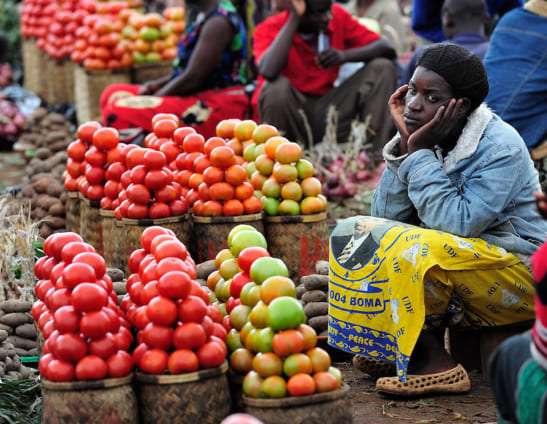Ghana’s inflation trajectory in 2025 has been one of cautious optimism, reflecting consistent improvements in price stability.
According to the latest report from IC Research, the research arm of IC Securities, inflation is expected to decline marginally in August 2025, although this comes with underlying risks. The report highlights that while food crop supply and stronger cedi performance have supported disinflation, unfavourable base effects could pose challenges to keeping inflation fully contained.
Ghana’s annual headline Consumer Price Index (CPI) inflation recorded a sharp 160-basis-point decline to 12.1% in July 2025, marking the seventh consecutive monthly drop. This represents a cumulative reduction of 11.7 percentage points in the first seven months of 2025, bringing inflation to its lowest level since October 2021.
Despite the general decline, IC Research warns that the August CPI could be influenced by base effects. Specifically, the report points out that the expected contraction in CPI for August 2025 will be smaller than the 1.6 percentage points contraction posted in August 2024. This creates what economists term an “unfavourable base drift,” meaning that the year-on-year comparison may appear weaker, putting upside pressure on the August inflation print.
In simple terms, while prices may fall on a month-to-month basis, the year-on-year decline may not appear as significant due to the relatively sharp fall recorded a year earlier. As a result, IC Research projects a slight uptick of 30 basis points in annual inflation, pegging it at 12.4% for August 2025.
Cushioning Factors
While base effects present risks, other variables are expected to cushion inflationary pressures. IC Research notes that energy prices are likely to remain lower on a year-on-year basis, reducing cost-push inflation from the energy sector. Additionally, the Ghana cedi has recorded some gains against major trading currencies in 2025, providing further relief on imported inflation.
These factors, when combined, are expected to moderate the inflationary environment, even as base effects temporarily push the annual figure higher. Importantly, IC Research projects a month-on-month deflation of 0.5% in August, reflecting genuine relief in domestic price levels.
Meanwhile, IC Securities remains cautiously optimistic about the inflation outlook for the rest of 2025. The firm has revised its end-2025 inflation forecast to 10.5%, down from its previous 11.3%. This revision is attributed to sharper-than-expected disinflation in July and positive short-term price dynamics.
However, caution lingers due to uncertainties surrounding utility tariff adjustments in the fourth quarter of 2025. A potential hike in tariffs could alter household consumption costs and offset some of the gains made earlier in the year. As such, IC Securities has retained a forecast band of 11.3% ±1.0 percentage points, while leaning toward the lower bound of 10.3%. It also flagged the possibility that, under favourable conditions, end-2025 inflation could hit the mid-9% area.
Policy Implications
The current inflation path carries critical policy implications for both government and the Bank of Ghana. For fiscal authorities, sustaining disinflation will require careful management of subsidies, taxes, and tariffs, particularly in the energy and utility sectors. Any abrupt upward adjustments could weaken consumer purchasing power and reignite inflationary pressures.
For the Bank of Ghana, the challenge lies in balancing its monetary stance. While the downward trend provides room for cautious easing to stimulate growth, the potential for utility-driven shocks means policymakers must tread carefully. Market watchers believe that further cuts to the monetary policy rate may only come if inflation convincingly moves closer to the single-digit band.
As IC Research aptly summarized, the month-on-month deflation projected for August is a sign of relief for consumers, yet the annual CPI figure could still tick upward. The big test will come in the final quarter of the year when tariff adjustments and global economic conditions determine whether Ghana sustains its disinflationary momentum or confronts fresh inflationary pressures.
READ ALSO: Lands Ministry Insists Fight Against Galamsey Under Control, Not Overwhelmed























